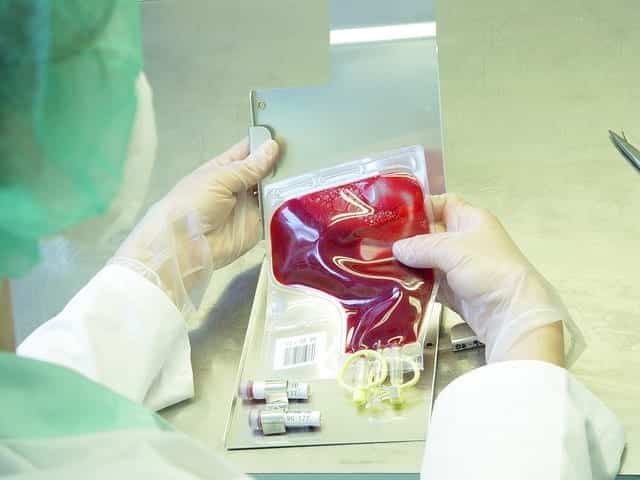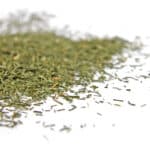

Autologous blood therapy at the vet
Autologous blood therapy is an alternative medical treatment method that is becoming increasingly important in veterinary medicine. A small amount of blood is taken from the animal and injected again using special preparation procedures. The therapy is intended to strengthen the immune system and support healing processes. This article examines the various aspects of autologous blood therapy at the vet.
The first references to the use of animal and human blood for a wide variety of diseases can be found in a Chinese pharmacopoeia as early as the 3rd century BC.
In the Western world it took until the 19th century for people to realize that undreamt-of powers lie dormant in the blood. The first hesitant attempts to administer his own blood took place. It was only in the 1930s that the first scientific papers were published that explained the mechanism of action of an autologous blood injection.
The autologous blood injection leads to a change in the reaction situation in the organism, which is reflected in an increase in the number of immune bodies in the blood.
This leads to an increase in the resistance of the entire organism and an increase in the general defense level, which has a positive influence on the ability to heal. For many illnesses, administering your own blood is beneficial and puts the patient in a position to deal with their illness much better. Necessary long-term medication can often be significantly reduced, thus sparing the patient side effects.
There are hardly any contraindications to autologous blood therapy (see below).
Basics of autologous blood therapy
Autologous blood therapy is a form of biological regulation therapy that is based on the assumption that the organism is stimulated to heal itself by returning its own blood into the body. The treatment aims to strengthen the immune system , reduce inflammation and activate the body's self-healing powers.
application areas
Autologous blood therapy is used in veterinary medicine for a variety of diseases and complaints. These include, among others:
- Allergies : For animals with allergies, autologous blood therapy can help regulate the immune system and reduce allergic reactions.
- Skin diseases : For skin problems such as eczema, itching or inflammation, therapy can lead to relief of symptoms.
- Illnesses of the musculoskeletal system : In the case of osteoarthritis, joint inflammation or tendon injuries, autologous blood therapy can support the healing process.
- Chronic diseases : For chronic diseases such as kidney failure, liver disease or respiratory problems, treatment can help improve the animals' quality of life.
Course of treatment
Autologous blood therapy is usually carried out on an outpatient basis at the vet. First, a small amount of blood, usually around 1-5 ml, is taken from the animal. The blood is then prepared using special procedures. These include, among other things, the activation of the blood by UV light or oxygen, potentization by trituration or shaking, or homeopathization by adding homeopathic medicines.
After processing, the blood is injected either directly into the animal's bloodstream, into the muscles or under the skin. The treatment can be repeated several times depending on the disease and the individual condition of the animal.
Advantages of autologous blood therapy
Autologous blood therapy offers various advantages over other treatment methods:
- Low side effects : Since the animal's own blood is used, allergic reactions or rejection reactions are almost impossible. The therapy is considered to be well tolerated and has few side effects.
- Natural self-healing : Autologous blood therapy relies on activating the body's own self-healing powers and strengthens the immune system in a natural way.
- No resistance : In contrast to antibiotics or other medications, there is no risk of resistance developing with autologous blood therapy.
- Individual treatment : Therapy can be tailored to the individual needs of the animal, for example by adding additional homeopathic medicines.
Possible risks and complications
Although autologous blood therapy is considered well tolerated and has few side effects, risks and complications can still occur. These include:
- Infections : If therapy is carried out improperly, infections can occur at the injection site or in the animal's body.
- Bruising : After the blood is injected, bruising or swelling may occur around the injection site.
- Pain : Some animals may experience pain or discomfort during or after treatment.
- Lack of effectiveness : In some animals, autologous blood therapy may not have a sufficient effect. In such cases, an alternative method of treatment should be considered.
Conclusion
Autologous blood therapy is a promising alternative treatment method in veterinary medicine that is intended to strengthen the immune system and activate the body's self-healing powers. By using the animal's own blood, the therapy is generally well tolerated and has few side effects. The areas of application are diverse and range from allergies to skin diseases and chronic illnesses.
However, the therapy should only be carried out by experienced veterinarians - like our Dr. Krause to minimize possible risks and complications. In addition, autologous blood therapy should be viewed as part of a holistic treatment concept and, if necessary, supplemented by other therapeutic approaches.






